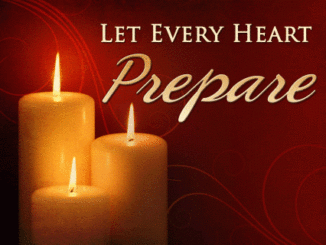Fr Innocent Abonyi, MSP
 A friend of mine once lamented to me: “When I and my wife first got married, I was amazed and pleased at how similar we were. We had identical senses of humour, liked and detested the same politicians and movies, agreed on the family menu and admired each other a great deal. We could complete each other’s sentences and communicated complicated thoughts in a few coded words. What would be hard for me to determine now is when exactly all these began to change. It is so bad between us now. She just hates me with the same intensity with which he had once loved me. My marriage is such a flop Father”.
A friend of mine once lamented to me: “When I and my wife first got married, I was amazed and pleased at how similar we were. We had identical senses of humour, liked and detested the same politicians and movies, agreed on the family menu and admired each other a great deal. We could complete each other’s sentences and communicated complicated thoughts in a few coded words. What would be hard for me to determine now is when exactly all these began to change. It is so bad between us now. She just hates me with the same intensity with which he had once loved me. My marriage is such a flop Father”.
Marriage is by its nature miraculous and magical. We do not fully understand it and cannot know where it is headed. To adequately care for its soul, it is important and better to honour its mystery than to attempt to outwit its intentions for what we, with our small minds may think is a better outcome. At one level, marriage is about relationships, but at another, it is a creation vessel in which soul-making can be accomplished.
We may honour marriage’s soul by discovering what it wants. Some marriage characteristically ask for distance, others for closeness. We can find out these preferences only by bringing to marriages, a spirit of openness and inquiry that will cut through pre-conceptions and society’s models. To this end, the importance of counselling in marriage and family can never be over-emphasized.
Examination of Concepts
(a) Marriage
John Welwood states that marriage is not just a pragmatic worldly arrangement. It also reflects a larger imperative of human life, which is to realise love’s full potential by giving it an earthly form. He speaks of marriage as having three dimensions: outer, inner and secret, each mutually enhancing one another (Welwood, 1990, p.184). These are the contexts within which counselling operates in marriage.
The outer dimension is the socially recognised form that marriage takes (ie., a man and a woman joining together in a life long partnership). The inner dimension of marriage refers to the nature and quality of a couple’s connection and interaction. How do they regard and treat each other? How do they communicate? Mutual respect is an essential ingredient of this inner dimension. Finally, the secret dimension of marriage consists in the inner transformation that occurs as a direct result of two people’s interaction. One cannot live in an intimate, enduring relationship with someone else without being transformed in some way by the experience. Being genuinely present and intimate with another person forces us to live on the edge of the unknown. Here, we are on our edge, where old, familiar ways of being, leave off and new possibilities keep opening up before us. A counsellor guides, presents options, empowers, underwrites these new possibilities and the potentials for change.
(b) Counselling
William Brier reflects that the generic aim of counselling of whatever kind is to help people help themselves by gaining an understanding of their problems and more especially their inner conflicts (William Brier. p. 10).
In the common sense understanding, counselling means advising someone who is faced with some kind of problem or difficulty. When we are aware of what another person is really up to underneath his/her bold or brave words, when we can see beyond faltering attempts at communication, we are rightly said to be counsellors, although perhaps not in the professional sense of it. In whatever setting we live and interact, listening with all our senses will help us read between the emotional lines being expressed. We will discover beyond the lop-sided smiles of a gorgeously dressed woman, deep emotions of anger, resentment, frustration, fear and dissatisfaction as a result of a failed or failing marriage. We will see beyond the boldness and arrogance of the man, a deep fear, threats and possessiveness that has gripped him and made his wife a permanent slave and servant who lives under his imperialist regime. Richard Vaughan describes counselling as a dialogue in which a counsellor establishes helping relationships with persons to help them better understand themselves and the situation in which they find themselves and then help them offer certain empathy and emotional support (Richard Vaughan, p.16). Pastoral Counsellors have God as the centre of their counselling relationships. The Counsellor-God-Counsellee relationship applies to pastoral counselling while the counsellor-counsellee relationship applies exclusively to secular counselling. The Pastor uses knowledge and insight beyond his/her theological training to function as an effective pastoral counsellor in its professional sense. A pastoral counsellor is theocentric in his outlook and views.
Role in the stability and harmony of marriage
The major areas where counselling shapes and enhances marriage relationships include:
(a) Maintenance of Contemplative Stance to Relationships
How we relate to someone we love provides a clear and accurate reflection of how we relate to ourselves. For this reason, relationships can help us face ourselves and understand ourselves more rapidly and more profoundly. Letting the heartbreak open allows me back to home-ground, reminding me that I can only be there with another as I am here with myself. Pastoral counselling or better put, the ministry of marriage counselling helps couples maintain contemplative attitude/stance to their relationships. It enables them to go through the school of love using mirrors and the other tools provided by counsellors.
A contemplative attitude to relationships helps couples to neither focus on the other as the cause of their marriage difficulties nor the solutions to them. It rather assists both parties to acknowledge the cause or solution as lying deep inside each of them. For instance, although clenching the hand into a fist may be an instinctive solution and attractive response to an immediate threat, it would be inappropriate to apply it like that does not only lead to some fatality but it degrades the human dignity that marriage seeks to perverse or enhance. It reduces us and so, one cannot walk around or live a debased and savage life that violence reveals. Christian counselling helps us process this aspect of our emotional response in the light of divine revelation. The contemplative stance helps us step out of our habitual mindsets.
(b) Information, Education and Skill-building
Some married couples have barriers to learning, communicating and acquiring skills needed in their life relationships. These barriers are addressed in individual, family or group pastoral counselling. For instance, a married couple may be so angry and hurt with each other that they cannot learn in a group setting about anger and conflict management until they have been guided through their current crisis. Families face a variety of crisis that needs the individual attention of a counselling relationship. Couples need the support of all around them in moments of crisis but they need especially a professional counsellor to help them handle post-traumatic stress syndrome after some devastating events and other difficult life circumstances.
(c) Family of Origin
According to Merle R. Jordan, an American Psychologist, our family of origin is the microcosm in which our relationships with the self, others and God are initially formed (Merle Jordan, 1999). Our patterns of interpersonal communication, intimacy and defences, etc., are largely learned in our family of origin and these dynamics strongly influence our relationship with God and neighbour. Our initial mental representations of God and neighbour depend on and/or are influenced by the perceived nature and quality of human relationships in our families of birth. Our concept of self and the roles we play in life are largely determined by the feelings, values, and beliefs of authority figures that we internalize from our childhood natal families.
In counselling, couples are helped to explore their families of origin to recognize how possibly and easily one gets fixated upon images of one’s childhood days and allow that to control his/her adult life. One of the early pioneers in family research, Murray Bowen, remarks that the basic relationship patterns developed for adapting to parental family in childhood are used in every other relationship throughout life (Quoted by Merle Jordan, 1999). The basic patterns in marriage, social and work relationships are identical to relationships patterns in the family. According to Rosellen Brown, when it comes to doing our lives, we either perpetuate our childhood or stand on it and finally kick it out from under.
Counselling helps couples to be aware of their families of origin and to know the false voice from there that are now acting as the voice of the divine and yet ruining their married lives. It aids couples to attain self-definition. During one of my recent retreats, I gave a conference on “family of origin as a crucible in which our spiritual and emotional experiences take shape”. At the end of the first part of the session, one middle-aged man walked up to me. He said that he had just realized the problem he had been facing in his marriage. He had all along related with his wife from the junks he carried over from his natal family (family of birth). He had wanted his wife to treat him in the same way that his mother and sisters used to relate with him or treat him. He vowed to change for better and to accept his wife as she was and with all she has to offer.
Many people are unconsciously caught up in trying to heal members of their families of origin that are unconsciously projected unto the spouse they live with. Pastoral counselling helps such people towards freedom and what Murray Bowen calls ‘differentiation’ (ie, self-definition or graduation from being a dependent child of our parents to be adults concerning them). Self-definition is a more important agent of change than expertise.
Conclusion
Marriage is a sacred human institution not only because it is a precious and revered way of forming human lives, but also because it is a form of religion itself, a special way in which spirituality pours into life (Thomas Moore, 1994, p.68).
Pastoral counselling towards harmony and stability in marriage presumes that couples are open to growth and development to their pastoral counsellors. When a marriage is in crisis, the needed intervention must be primarily in the interest of change for better through options and the decisions to be made by the couples themselves.
How the counsellor enters the system is a critical factor in his/her ability to affect change. The first contact with either reinforces existing patterns within the system or provide occasions for change. The first task is to join the system if invited. We can only help couples and families if we stay outside the system while participating in it. Effective work with a family requires a willingness on the part of the counsellor-minister to exercise appropriate authority. He/She should have some clarity about his/her role and try to play just that.




Be the first to comment